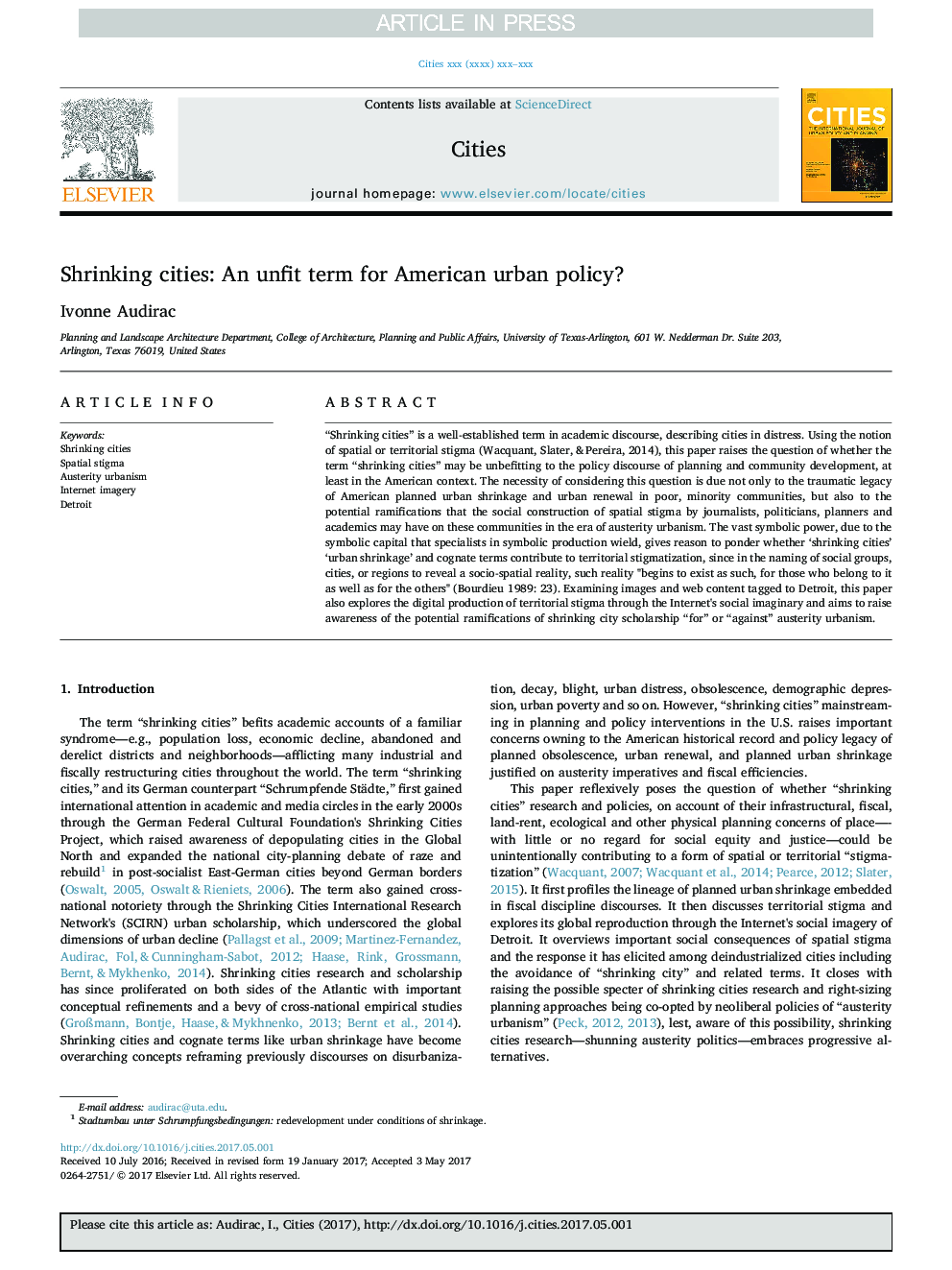| Article ID | Journal | Published Year | Pages | File Type |
|---|---|---|---|---|
| 7417408 | Cities | 2018 | 8 Pages |
Abstract
“Shrinking cities” is a well-established term in academic discourse, describing cities in distress. Using the notion of spatial or territorial stigma (Wacquant, Slater, & Pereira, 2014), this paper raises the question of whether the term “shrinking cities” may be unbefitting to the policy discourse of planning and community development, at least in the American context. The necessity of considering this question is due not only to the traumatic legacy of American planned urban shrinkage and urban renewal in poor, minority communities, but also to the potential ramifications that the social construction of spatial stigma by journalists, politicians, planners and academics may have on these communities in the era of austerity urbanism. The vast symbolic power, due to the symbolic capital that specialists in symbolic production wield, gives reason to ponder whether 'shrinking cities' 'urban shrinkage' and cognate terms contribute to territorial stigmatization, since in the naming of social groups, cities, or regions to reveal a socio-spatial reality, such reality "begins to exist as such, for those who belong to it as well as for the others" (Bourdieu 1989: 23). Examining images and web content tagged to Detroit, this paper also explores the digital production of territorial stigma through the Internet's social imaginary and aims to raise awareness of the potential ramifications of shrinking city scholarship “for” or “against” austerity urbanism.
Keywords
Related Topics
Social Sciences and Humanities
Business, Management and Accounting
Tourism, Leisure and Hospitality Management
Authors
Ivonne Audirac,
